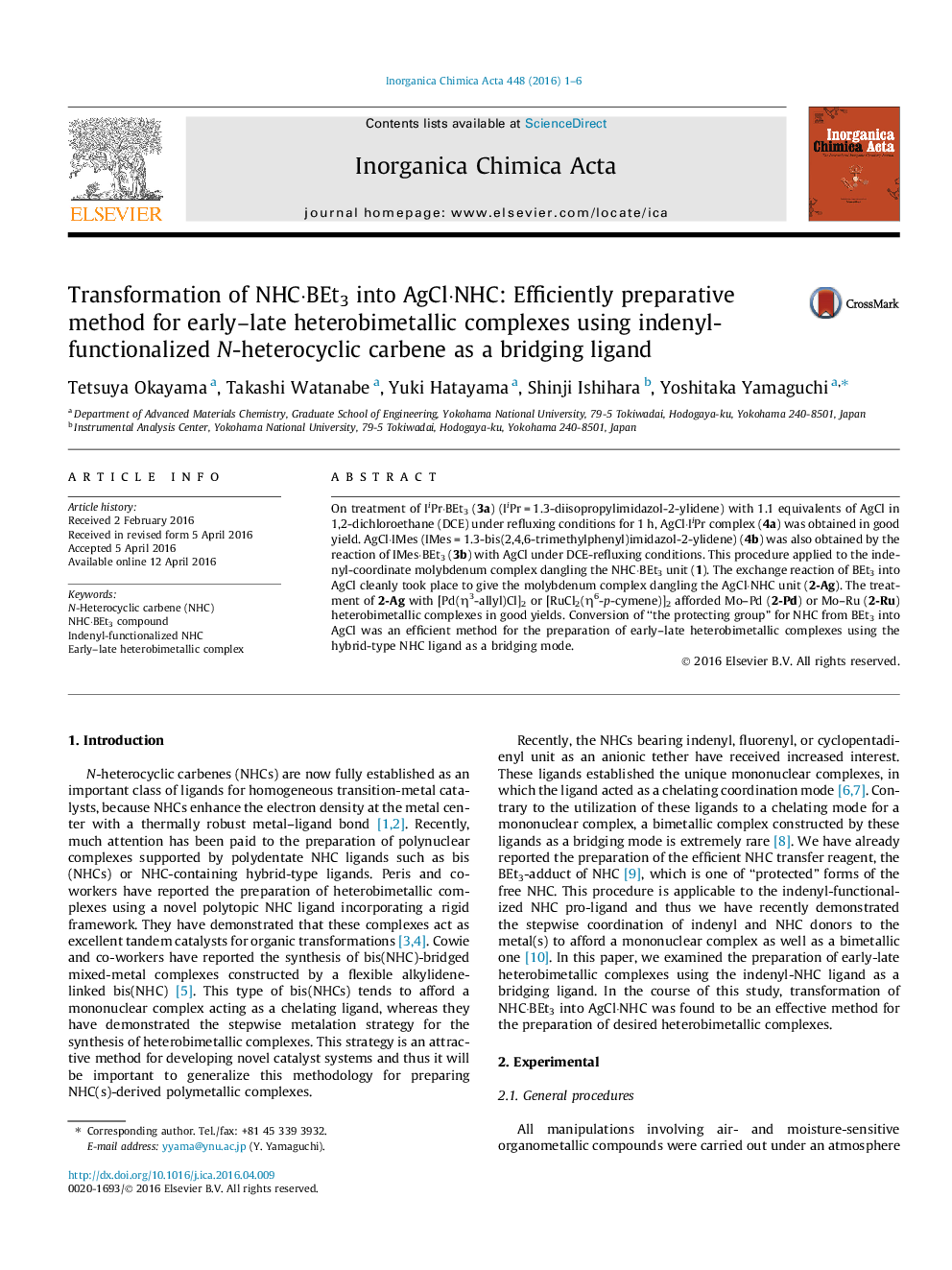| کد مقاله | کد نشریه | سال انتشار | مقاله انگلیسی | نسخه تمام متن |
|---|---|---|---|---|
| 1306367 | 1499141 | 2016 | 6 صفحه PDF | دانلود رایگان |

• The reaction of the BEt3-adduct of NHC with AgCl afforded the silver NHC complex.
• Indenyl complex dangling the AgCl·NHC unit was prepared by the exchange reaction.
• Early–late heterobimetallic complexes using the indenyl-NHC ligand were prepared.
On treatment of IiPr·BEt3 (3a) (IiPr = 1.3-diisopropylimidazol-2-ylidene) with 1.1 equivalents of AgCl in 1,2-dichloroethane (DCE) under refluxing conditions for 1 h, AgCl·IiPr complex (4a) was obtained in good yield. AgCl·IMes (IMes = 1.3-bis(2,4,6-trimethylphenyl)imidazol-2-ylidene) (4b) was also obtained by the reaction of IMes·BEt3 (3b) with AgCl under DCE-refluxing conditions. This procedure applied to the indenyl-coordinate molybdenum complex dangling the NHC·BEt3 unit (1). The exchange reaction of BEt3 into AgCl cleanly took place to give the molybdenum complex dangling the AgCl·NHC unit (2-Ag). The treatment of 2-Ag with [Pd(η3-allyl)Cl]2 or [RuCl2(η6-p-cymene)]2 afforded Mo–Pd (2-Pd) or Mo–Ru (2-Ru) heterobimetallic complexes in good yields. Conversion of “the protecting group” for NHC from BEt3 into AgCl was an efficient method for the preparation of early–late heterobimetallic complexes using the hybrid-type NHC ligand as a bridging mode.
Early–late heterobimetallic complexes using the indenyl-NHC ligand were prepared.Figure optionsDownload as PowerPoint slide
Journal: Inorganica Chimica Acta - Volume 448, 1 July 2016, Pages 1–6